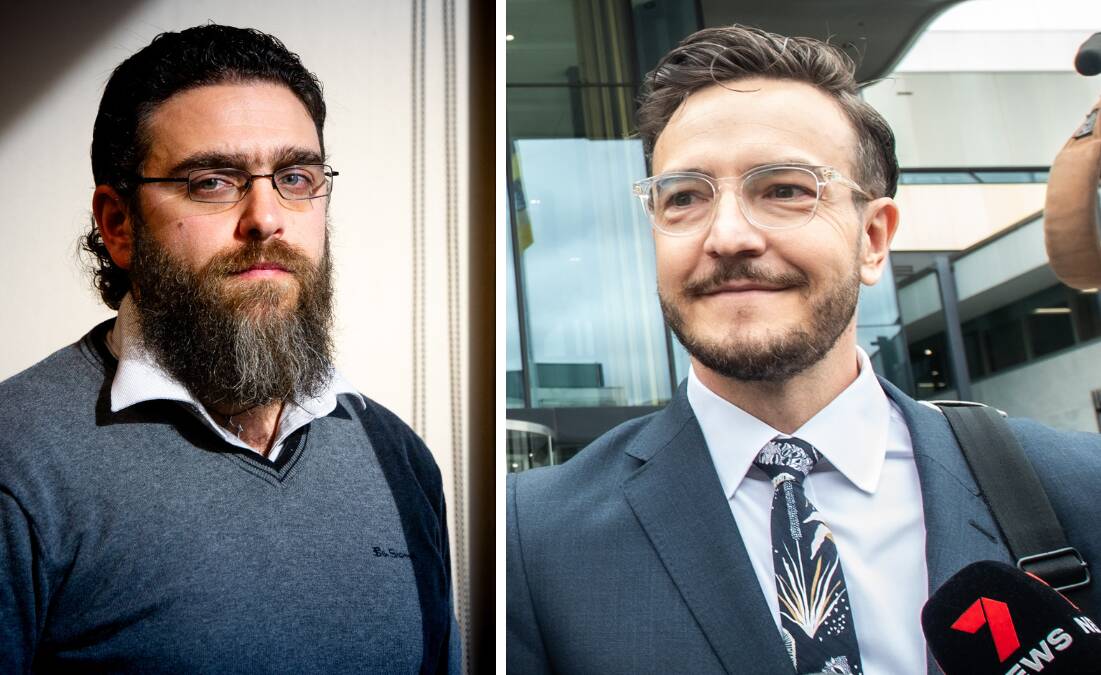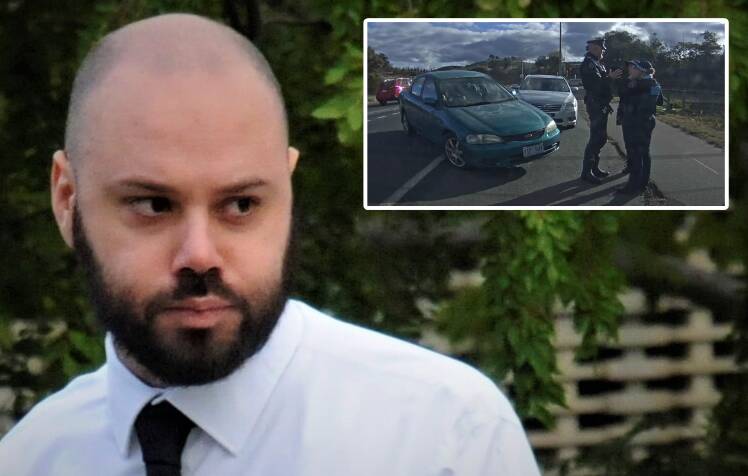A Canberra defence lawyer has taken the unusual step of praising prosecutors after the local police union accused them of "undercooking" a high-profile case.
Fresh tensions between the territory's police and prosecutors came to the fore earlier this week, when Hawker man Thomas Matthews was sentenced to 23 months in jail.
Matthews had pleaded guilty to two counts of causing grievous bodily harm by a negligent act after driving into three ACT Policing officers, badly injuring two of them, in July 2021.
While it was agreed the collision had been accidental, Chief Justice Lucy McCallum criticised the position prosecutors took when they did not ask her to lock Matthews up for any longer than the 16 months he had already served on remand.

The judge said this attitude paid "inadequate regard to the need to denounce the high degree of negligence ... and the need to recognise the very substantial harm done to the police officers, whose lives have been so dramatically affected".
Australian Federal Police Association president Alex Caruana also took aim at the office of the ACT Director of Public Prosecutions, suggesting different charges should have been laid and calling for "a review of what's happening at the DPP".
Mr Caruana's comments have now prompted a stinging rebuke from defence lawyer Tom Taylor, whose firm, Hugo Law Group, represented Matthews.
Mr Taylor warned against the case being used as "a trojan horse" to conduct an "unfounded" review.

"The DPP are to be fair and even-handed and present only the case that the evidence and expert evidence supports," Mr Taylor told The Canberra Times.
"The DPP are not to overcharge. In the prosecution of Mr Matthews, the DPP ... presented charges that were, in my view, entirely appropriate considering the evidence and expert evidence."
Mr Taylor joined ACT Director of Public Prosecutions Shane Drumgold SC in defending the way experienced prosecutor Anthony Williamson SC handled the case.
"His experience is recognised by his post nominals," Mr Taylor said of Mr Williamson.
"He is a robust and formidable advocate. He is no easy beat."
Mr Caruana was also critical of the sentence imposed on Matthews, calling it "very soft".
In response, Mr Taylor described sentencing as one of the hardest exercises in the criminal justice system.
"Some sentences may be regarded as too harsh or too soft," he said.
"That is why there is an appeal process. Whether the sentence is correct or incorrect is a matter for the ACT Court of Appeal, should an appeal be filed.
"It is not a subject that every person is qualified to provide an opinion on."







